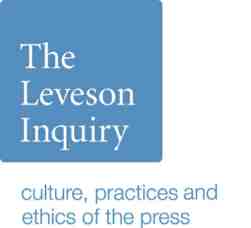| 31st December | | |
Top Gear Christmas Special winds up Keith Vaz
| See article from
dailystar.co.uk
|
 Top Gear's Christmas Special had a bit of fun in India. The usual irreverent jokes ridiculed India's food, toilets, traditional clothing, trains and history.
Top Gear's Christmas Special had a bit of fun in India. The usual irreverent jokes ridiculed India's food, toilets, traditional clothing, trains and history. The jokes notably included Clarkson riding around the country's worst slums in a
4-litre Jaguar fitted with a toilet, joking: This is perfect because everyone here gets the trots. This excellently wound up the parliamentary nutter Keith Vaz. Vaz, whose parents are from India, said: Clarkson and the BBC should be ashamed for broadcasting gags about the nation.
Mr Clarkson needs to stick to talking about cars, not cultures. And he should apologise for his lack of taste. He and the BBC have done India a great disservice with this programme. Some of the contents of the programme are clearly offensive and not the least bit funny. They were completely pointless.
Mr Clarkson is not a comedian. He talks about his cars and that is why he gets on the show. Why do him and the BBC bother putting this out?
Even David Cameron participated in the Top
Gear fun. He had a cameo role waving off the Top Gear trio on a trade mission as ambassadors of Britain to save the UK from bankruptcy. The BBC confirmed they had received 23 complaints about the show, all about racial issues. A
spokesman said there were no plans for Clarkson or the BBC to apologise.
|
| 30th December | | |
Page 3 nutters make submissions to the Leveson Inquiry
| See article
from guardian.co.uk
|
 Four nutter groups: End Violence Against Women, Equality Now, Object and Eaves -- are calling on the Leveson inquiry to move away from addressing the concerns of celebrities and other victims of alleged phone hacking by News International and look at the
daily treatment of women, which they claim contributes to a society where rape can only be committed by evil strangers down darkened alleyways and where a woman is valued only because of her body.
Four nutter groups: End Violence Against Women, Equality Now, Object and Eaves -- are calling on the Leveson inquiry to move away from addressing the concerns of celebrities and other victims of alleged phone hacking by News International and look at the
daily treatment of women, which they claim contributes to a society where rape can only be committed by evil strangers down darkened alleyways and where a woman is valued only because of her body. In four detailed submissions the groups lay out
what they see as the worst culprits. The organisations say they took a small sample of sexist, and often misleading, articles from a vast number of supposedly offensive reports. End Violence Against Women (Evaw) pulled out 10 examples which
they say provides a snapshot of poor reporting of violence against women stories which were either intrusive, inaccurate, which misrepresented or were misogynistic, victim-blaming or condoning violence against women and girls . The
portrayal of prostitutes in the media was also damaging, according to the Evaw submission. It feeds into myths about prostitution, which at worse lead to attitudes that tolerate violence against women in prostitution or regard it as inevitable, it
said. A joint submission from anti-sexualisation campaign group Object and Turn Your Back on Page 3 charted a week in the life of the Sun, the Daily Star and the Sport . It highlighted an article on 14 November when the Sun trialled invisible shaping bum boosters
by testing men's reactions when a woman bent over at work, and, according to the groups, eroticises a form of sexual harassment making it appear that it is what women should, and do, seek from men . It criticised the same newspaper for
presenting itself as a family product, offering a free toy on its front page while containing adverts for XXX DVDs and Page 3 imagery , and highlighted a article the day earlier which provided tips for women on how to stop your man having
affairs which included the advice: Men have three basic instincts -- food, shelter and sex. If you nail that as a woman, there's no need for him to look elsewhere. The organisation's campaigns manager Anna van Heeswijk said: Sexualised images such as 'Page 3' are banned from the workplace due to the intimidating, hostile, degrading, humiliating or offensive environment that these images can create. Yet, in a situation unusual to the UK, these images saturate national tabloids which are sold without age-restriction in newsagents and supermarkets and which are read and left lying around in the public domain.
|
| 16th December | | |
Diane Abbott blames porn culture for an increase in young sex
| See article
from london24.com
|
 London MP Diane Abbott has attacked the pornification of popular culture which she says is to blame for high rates of under-age sex among girls.
London MP Diane Abbott has attacked the pornification of popular culture which she says is to blame for high rates of under-age sex among girls. More than one in four young women first have sex below the age of 16, a greater proportion than
previous generations, according to a NHS health survey. Abbott said. The rising numbers of girls having under-age sex is alarming. It is not a cost-free phenomenon. It poses public health policy challenges and
social challenges. The underlying cause must be the 'pornification' of the culture and the increasing sexualisation of pre-adolescent girls. Too many young girls are absorbing from the popular culture around them that they only
have value as sex objects. Inevitably they act this notion out.
Government must improve education in schools for both girls and boys, the shadow health minister insisted. But she dismissed as pointless abstinence drives similar
to that mooted by Tory MP Nadine Dorris.
|
| 15th December | | |
|
 Jennifer Saunders whinges at the supposed proliferation of pornography in pop culture
Jennifer Saunders whinges at the supposed proliferation of pornography in pop culture See article from dailymail.co.uk
|
| 12th December | | |
An argument with too many holes
| See article from
guardian.co.uk
|
 This Saturday activists in London led by UK Feminista took to the streets, and one street in particular: Harley Street, the go-to place for cosmetic surgery.
This Saturday activists in London led by UK Feminista took to the streets, and one street in particular: Harley Street, the go-to place for cosmetic surgery. Organisers described the Muff March as a creative protest against the pornified
culture driving women under the knife to get a designer vagina . Activists wore fake muffs and demanded that pornography and cosmetic surgery industries Keep their mitts off our bits . There is said to be a growing
concern among women that their genitals don't measure up to the ideal touted by the global pornography industry -- which for the past two decades has been busy infiltrating mainstream society. In porn, removal of pubic hair is de rigueur, and so
we see this norm transferred into mainstream beauty practices. With removal of pubic hair now standard, labia are more visible and open to scrutiny. Now every inch of a woman's body is objectified and subject to judgment. So on Saturday we'll be
challenging the demand from pornography that grown women remove their pubic hair to appear more like pre-pubescent girls. But it seems that commentators and press reports have been a little incredulous. For example: Offsite: Is the Muff March such a cunning stunt
See article from guardian.co.uk
by Naomi McAuliffe There has been far more activism against designer vaginas in the US, where the phenomenon has been more prevalent for longer. But there is an interesting difference in approach. US activism is far more
concerned about the risk of such untested, unregulated, and unnecessary procedures to women's health. The Muff March in London became undeniably and inevitably about porn. That will certainly help it get press coverage for a couple of days and get the
commentators apoplectic. But it will also alienate a lot of women who do not believe all their personal choices about their body are porn-based; that bush trimming is treachery; or who certainly don't want the focus of women's rights to be muff-centric.
|
| 28th November | |
| Christian Broadcasting Council asks for the BBC to be packed with churchgoers
| Surely it is to be expected that a 'creative' industry, will on average, feature people more confident in their own selves ,and therefore less likely to
sheepishly follow some of the more ludicrous norms dictated by social pressure. No doubt the BBC has a higher percentage of gays than the national average too, for exactly the same reason. See
article from christian.org.uk
|
 The Christian Broadcasting Council (CBC) has claimed that churchgoers are underrepresented at the BBC and it may be affecting the Corporation's output.
The Christian Broadcasting Council (CBC) has claimed that churchgoers are underrepresented at the BBC and it may be affecting the Corporation's output. The Christian media group made the comments in a submission to the TV censor Ofcom. J
Peter Wilson, a media consultant with CBC who co-wrote the submission, highlighted the BBC's own figures: The number of staff professing a Christian faith was 37%, compared to 63% nationally. Those saying they were
Muslim was the same as the national figure, and those saying they were non-religious was 50%, compared to 23% nationally. It is important that media organisations -- including the BBC -- employ people with a real knowledge and
understanding of religion, including the Christian faith in its many forms. Ofcom and Parliament need to understand that the reporting of any matter is influenced by the journalist's worldview. A variety of
providers is essential in a free and democratic society -- including those with a faith-based perspective.
CBC also called for fair representation of faith groups in media ownership .
|
| 24th November | |
| The ever more ludicrous ASA bans advert for unsafe photo shoot location
| See article
from asa.org.uk
|
 An ad in the September 2011 edition of Tatler Magazine for the fashion retailer, Miu Miu, featured the young model/actress Hailee Steinfeld. She was sitting on railway tracks and looked as if she was upset and may have been crying.
An ad in the September 2011 edition of Tatler Magazine for the fashion retailer, Miu Miu, featured the young model/actress Hailee Steinfeld. She was sitting on railway tracks and looked as if she was upset and may have been crying.
- A complainant, who believed the ad showed someone who had been crying, objected that it was irresponsible because it was suggestive of youth suicide, especially because the ad could be seen by impressionable young people.
- The ASA
challenged whether the ad was irresponsible because it showed a child in an unsafe location.
Prada Retail UK Ltd said the ad was part of a serious, high-fashion campaign aimed at adult women. It was placed only in adult, high-fashion magazines such as Tatler. Prada stated that the ad was not created to give this impression to anyone,
or with the intent of depicting a child in an unsafe location. The campaign was photographed by well-known photographer and film maker, Bruce Weber, and featured the well-known American actress, Hailee Steinfeld who was nominated for an Oscar and BAFTA
this year for her performance in the film True Grit . The photographs were shots of the actress in between takes of the film, while she was waiting for the next scene to begin. 1. Prada said Hailee Steinfeld was rubbing her eye with her
finger, indicating that it was itchy or had something in it. This was one of the between takes shots in the campaign. Hailee Steinfeld was waiting for the next take of the film to start and, therefore, was not posing for the camera and was
relaxed. She was acting in an unconscious manner. Prada stated this was natural for a person to do when they were not being watched. They stated that Hailee Steinfeld was not crying, nor had she been asked to cry or look upset. The ad pictured her with a
wistful and thoughtful face. 2. Prada said the ad was photographed on an abandoned railway track in a foreign country. Hailee Steinfeld was sitting on the edge of the train track as if she was resting between takes of the movie on a hot
day. They said the viewpoint of the ad extended along the railway track and it was clear that there was no train in sight. Prada said that she could have easily moved from where she was sitting because she was not restrained in any way. Because the ad
was photographed on a redundant railway track in the ad, neither Hailee Steinfeld nor anyone else, was not placed in danger. ASA Decision 1. Not Upheld We did not consider that Hailee Steinfeld was shown looking in
distress or that she had been crying. We noted that the ad had been carefully targeted and placed in a sophisticated, high fashion magazine with a predominantly adult readership and that the Miu Miu brand was not aimed at teenagers or young children.
Because the ad was placed in a magazine with a mainly adult readership and it showed a stylised image of Hailee Steinfeld dressed in sophisticated 1940s style clothing we considered that readers of the magazine would understand that the image was
sufficiently removed from reality and that it represented a staged fashion shoot. In that context, we therefore concluded that the ad was prepared with a due sense of responsibility and would not be suggestive of youth suicide to impressionable young
people. On this point, we investigated the ad under CAP Code rules 1.3 (Social responsibility), 4.5 (Harm and offence) but did not find it in breach. 2. Upheld We noted Prada's comments that the photo was shot on an abandoned railway
track and that Hailee Steinfeld was not in any way constrained to that position, and that the viewpoint of the ad extended along the railway track where there was clearly no train in sight. We noted that she could have easily moved from where she was
sitting, that she was not running along the track, and she was not playing on it. We acknowledged that the ad was part of a serious, high fashion campaign aimed at adult women; and that it was placed only in adult, high fashion magazines such as Tatler,
which was not aimed or addressed at children. Nevertheless, because the ad showed Hailee Steinfeld, who was 14 years of age only when the photo was shot, in a potentially hazardous situation sitting on a railway track, we concluded the ad was
irresponsible and in breach of the Code in showing a child in a hazardous or dangerous situation. The ad breached CAP Code rules 1.3 (Social Responsibility), 4.5 (Harm and Offence) and 5.1.2 (children).
|
| 17th November | | |
Advert censor bans bikini adverts featuring slim model
| 12th November 2011. See
article from asa.org.uk |
 A website ad on www.iheartdropdead.com, for an online clothing retailer, Drop Dead Clothing , featured a model in a number of images, including in bikinis and denim shorts.
A website ad on www.iheartdropdead.com, for an online clothing retailer, Drop Dead Clothing , featured a model in a number of images, including in bikinis and denim shorts. A complainant objected that the ad was
irresponsible and offensive, because they believed the model was underweight and looked anorexic. Drop Dead Clothing Ltd said the model was a standard size eight, as defined by the British Standard BS EN 13402, and wore an
unadjusted size eight bikini in the ad. They said while many people in the UK may find a size eight too slim, a size eight was a normal UK clothing size and it would be unreasonable to consider a size eight model offensive. They said size eight was their
most popular size. Drop Dead provided the model's measurements and said that she might not have any fat around her ribs, but she had a bust, hips and healthy skin. They said the makeup used in one of the images may have given her
the appearance of dark sunken eyes and a stretched pose may have made her torso look slimmer. They also supplied other photos of the model, which they said showed she was not emaciated and was perfectly healthy. ASA Assessment:
Complaint Upheld The ASA considered that the model was very slim, and noted that in the bikini images her hip, rib and collar bones were highly visible. We also noted that in the bikini and denim shorts images, hollows in her
thighs were noticeable and she had prominent thigh bones. We considered that in combination with the stretched out pose and heavy eye makeup, the model looked underweight in the pictures. We noted that Drop Dead's target market
was young people. We considered that using a noticeably skinny model with visible hip, rib, collar and thigh bones, who wore heavy makeup and was posed in ways that made her body appear thinner, was likely to impress upon that audience that the images
were representative of the people who might wear Drop Dead's clothing, and as being something to aspire to. Therefore, while we considered the bikini and denim short images might not cause widespread or serious offence, we concluded they were socially
irresponsible. The ad breached CAP Code rules 1.3 (Social responsibility) but not 4.1 (Harm and Offence). Update: MP with a thinking disorder supports ASA ban of perfectly healthy slim model 17th November 2011. See
article from eveningtimes.co.uk
 East Dunbartonshire MP Jo Swinson, who co-founded the Campaign For Body Confidence says she is glad the Advertising Standards Authority has acted over the online images of Amanda Hendrick in a Drop Dead clothing advert.
East Dunbartonshire MP Jo Swinson, who co-founded the Campaign For Body Confidence says she is glad the Advertising Standards Authority has acted over the online images of Amanda Hendrick in a Drop Dead clothing advert. Swinson said:
While Amanda is clearly a very beautiful young model, in this advert she is posed in such a way that emphasises her petite frame and makes her bones clearly visible. Glamorising ultra-thin bodies in
fashion ads can have a really damaging effect -- particularly on those at risk or recovering from eating disorders, so I'm glad the Advertising Standards Authority has taken action..
Drop Dead Clothing maintain Amanda is healthy and
is not anorexic.
|
| 13th November | | |
Anti-bullying campaigners to target internet anonymity
| See
article from diana-award.org.uk
See Diana Award report
See also Identity and the internet: From pixels to persona from
ft.com
|
 A campaign group called Diana Award write:
A campaign group called Diana Award write: As the UK prepares to raise awareness of bullying during Anti-Bullying Week, 14-18 November, latest research reveals that cyber-bullying amongst teenagers is on the
increase with 38% affected. A staggering 78% of young people fear cyber-bullying will continue to rise. 46% of young people feel that current initiatives are insufficient in targeting their protection, prevention and needs, perhaps partly explaining why
28% of cyber-bullying victims have not informed anyone of their experience. The research, Young People's voices on Cyber-bullying, was commissioned by the Diana Award, with the support of the Children's Research Centre, Open
University. The Diana Award run a peer led bullying prevention programme, Anti-Bullying Ambassadors, in 200 schools and youth organisations throughout England. The research will be discussed at the Diana Award National
Anti-Bullying Conference on Monday 14th November in London.
Update: Calling for an end to internet anonymity See article from telegraph.co.uk
 This week campaigners will use a conference in London to call for social networking websites to stop bullies sending messages anonymously, saying that it is particularly damaging to children and teenagers. They will say that new websites which make
use of Facebook - by far the most popular social networking medium - are encouraging the anonymous posting by making it easy and accessible to under-18s.
This week campaigners will use a conference in London to call for social networking websites to stop bullies sending messages anonymously, saying that it is particularly damaging to children and teenagers. They will say that new websites which make
use of Facebook - by far the most popular social networking medium - are encouraging the anonymous posting by making it easy and accessible to under-18s. The report, by campaigning group Diana Award questioned 1,512 children aged 11 to 16 across
England and found that 38% had suffered abuse online at lease once, and that 28% of victims have not told anyone about their experience. Nearly half of youngsters feel current attempts to prevent online bullying are inadequate. Beatbullying said
it was particularly concerned about the growth of trolling . One website, Formspring, has been particularly linked to anonymous cyberbullying. Formspring allows its 25 million members to send unmoderated questions or messages to each other
anonymously. Many are drawn into it through Facebook, which itself prevents anonymous messages. Richard Piggin, the deputy chief executive of Beatbullying, said: Users should not have the option of remaining
anonymous on sites such as Formspring and other social networking platforms. Anonymity encourages people to act in a way they might well not in real life or if they were named online. Whatever sites like Formspring say about
anonymity allowing people to express themselves, it is clear that it is being used in a negative way by allowing children to hide behind it in order to abuse others. Other social networking sites encourage you to use your real
identity, which is a positive thing. Formspring needs to make changes.
Ending anonymity is one of a series of reforms campaigners now want from the websites. Charities want internet and mobile phone networks to provide stronger
safeguards against bullying, including better safety features, more regulation and codes of conduct.
|
| 9th November | | |
Daily Mail admit that 'Winterval' did not replace Christmas in Birmingham
| Based on article from
dailymail.co.uk
|
 The Daily Mail have finally owned up to printing bollox about Birmingham renaming Christmas as the now almost legendary Winterval.
The Daily Mail have finally owned up to printing bollox about Birmingham renaming Christmas as the now almost legendary Winterval. The Daily Mail have written in their corrections column: We stated in an
article on 26 September that Christmas has been renamed in various places Winterval. Winterval was the collective name for a season of public events, both religious and secular, which took place in Birmingham in 1997 and 1998.
We are happy to make clear that Winterval did not rename or replace Christmas.
|
| 31st October | |
| Church of England threatens to pull their investment from ISPs unless they 'take action against porn'
| See
article from
dailymail.co.uk
|
 The Church of England is threatening to use its financial power to inflict internet censorship on Britain. It is considering withdrawing the millions it has invested in ISPs unless they take action.
The Church of England is threatening to use its financial power to inflict internet censorship on Britain. It is considering withdrawing the millions it has invested in ISPs unless they take action. The Church of England, which wields significant
financial clout on the markets, is reviewing investments worth tens of millions. It refuses to invest in firms which fuel the very problems Christians are trying to tackle and has already leaned heavily on supermarkets to be more responsible in the way
they sell alcohol. A Church spokesman said members of its ethical investment advisory group are considering new guidelines on pornography which take into account how easy it is to access with modern media. The Church of England's stance on
porn was welcomed by the Reverend Nutter Richard Moy, who works with young people in Lichfield, Staffordshire. He spouted without a grain of justification: It is not surprising that people go from soft porn to
progressively more hard-core porn to the point where they are so depraved that they do things that they would never imagine doing. I think that if people start using mild porn to gratify a need rather than looking at why they need
that gratification then they will eventually move on to more disturbing things.
[On the other hand, if people don't gratify their needs, eg priests trying to be celibate, then they may eventually move on to
even more disturbing things].
|
| 11th October | |
| Terry Jones comments that Life of Brian could never be filmed today
| See article from
thescotsman.scotsman.com
|
 Monty Python star Terry Jones has revealed he would shy away from making the film Life of Brian today, because of a resurgence in religious belief. He said:
Monty Python star Terry Jones has revealed he would shy away from making the film Life of Brian today, because of a resurgence in religious belief. He said: At the time, religion seemed to be on the back
burner and it felt like kicking a dead donkey. It's come back with a vengeance and we'd think twice about making it now.
Jones directed and acted in the 1979 film, which sparked accusations of blasphemy. Opponents of the
now-celebrated comedy claimed it made fun of Jesus. Comment: A resurgence in religious belief? There's hardly much evidence 'of a resurgence in religious belief'. The opposite is clearly the
case. However the sharp decline in belief must be making the christians feel a little insecure. Perhaps in the days of Life of Brian, the christians generally were confident enough that such a minor jibe could hardly shake their religion. Now they are a
little beleaguered, and must feel that they have to be more willing to fight for the survival of their cause. Then of course there's the tension with other religions. And there its the authorities who feel that they must calm any
tensions by trying to censor anything that could add to that tension. Either way, it would appear that Terry Jones is right, and Life of Brian could never be filmed today.
|
| 2nd October | | |
Turn Your Back on Page 3
| See turnyourbackonpage3.wordpress.com
|
 Thanks to Melon Farming readers who have identified a new brand of nutters not previously noticed.
Thanks to Melon Farming readers who have identified a new brand of nutters not previously noticed. Turn Your Back on Page 3 introduce themselves thus: The Prime Minister has responded to the scandal and
corruption exposed at News International by launching an inquiry into the culture and ethics of the UK press. The Turn Your Back On Page 3 campaign demands that The Sun's Page 3 is acknowledged in this inquiry and removed from our
most popular newspaper immediately. As a cultural icon, Page 3 symbolises the acceptance and normalisation of the sexual objectification/pornographic imagery of women and girls that pervades our daily newspapers and popular
culture -- and thus, ultimately, symbolises and contributes to our unequal status. We demand that the government addresses the subject of Page 3 today and by doing so demonstrates to society that it is serious about stamping out
sexism once and for all. We cannot waste any more time and we will not wait any longer. The government either values and respects the female half of humanity or it doesn't, and the removal of Page 3 would be a momentous step in the right direction in
proving to society that is does.
|
|
Latest Nutters | News Saturday 22nd February... | | News Wednesday 5th February... | | News Tuesday 4th February... | |
|